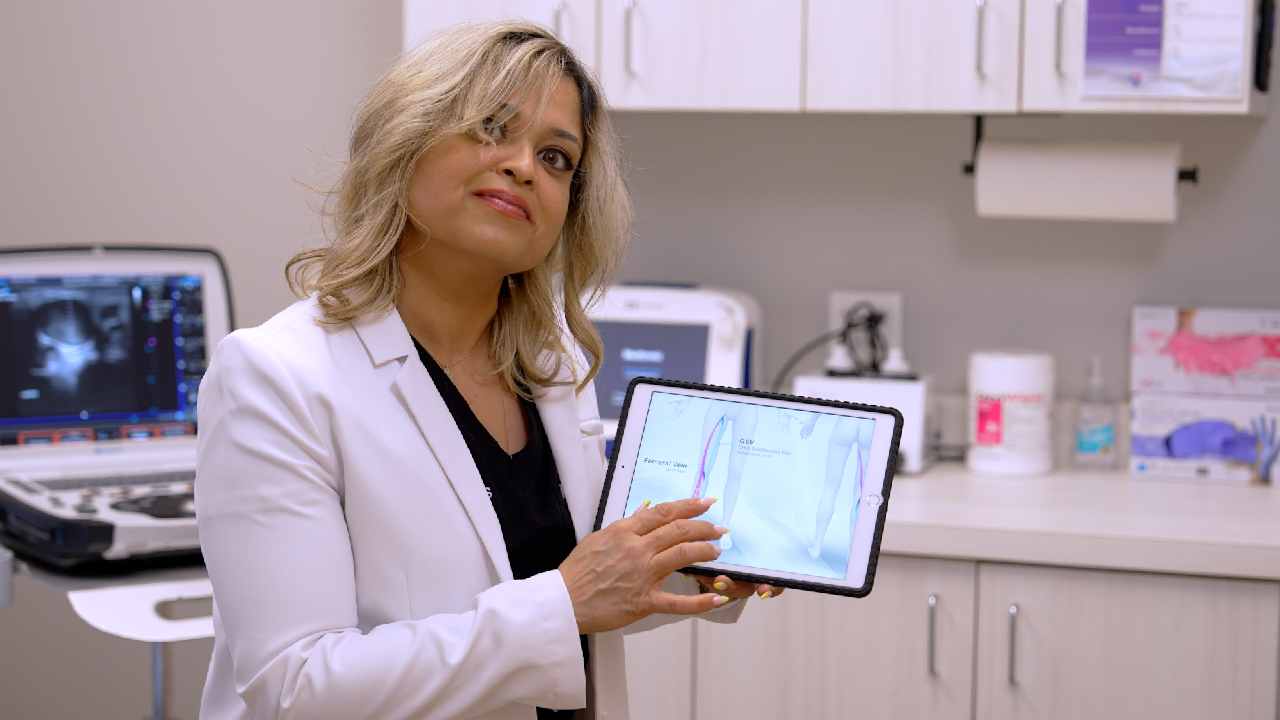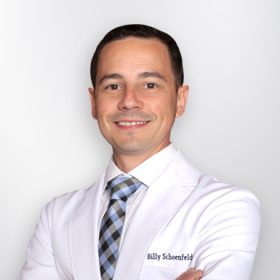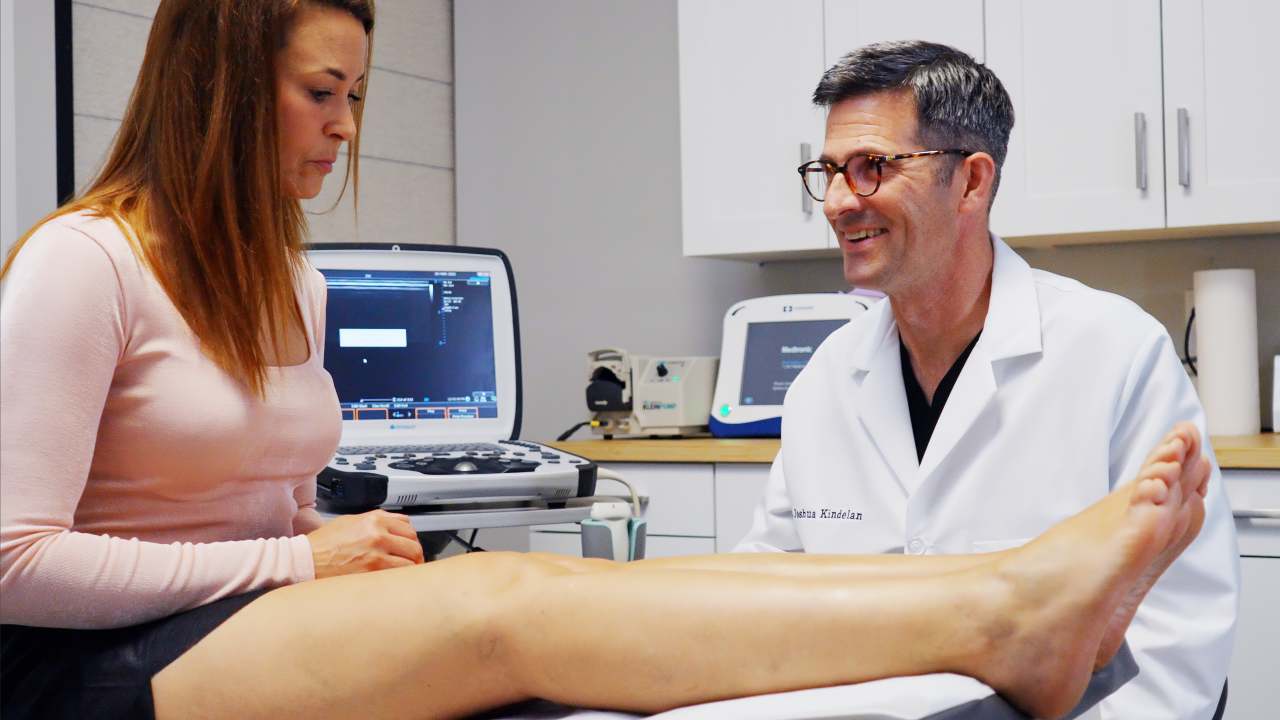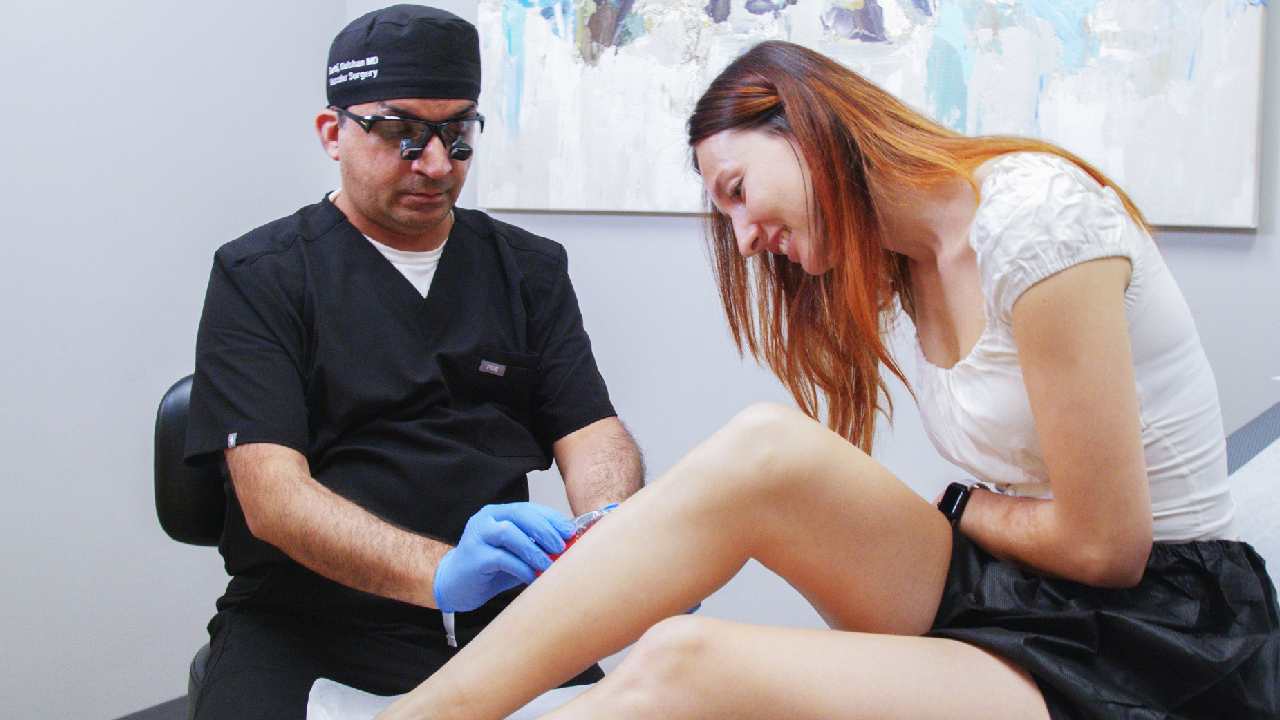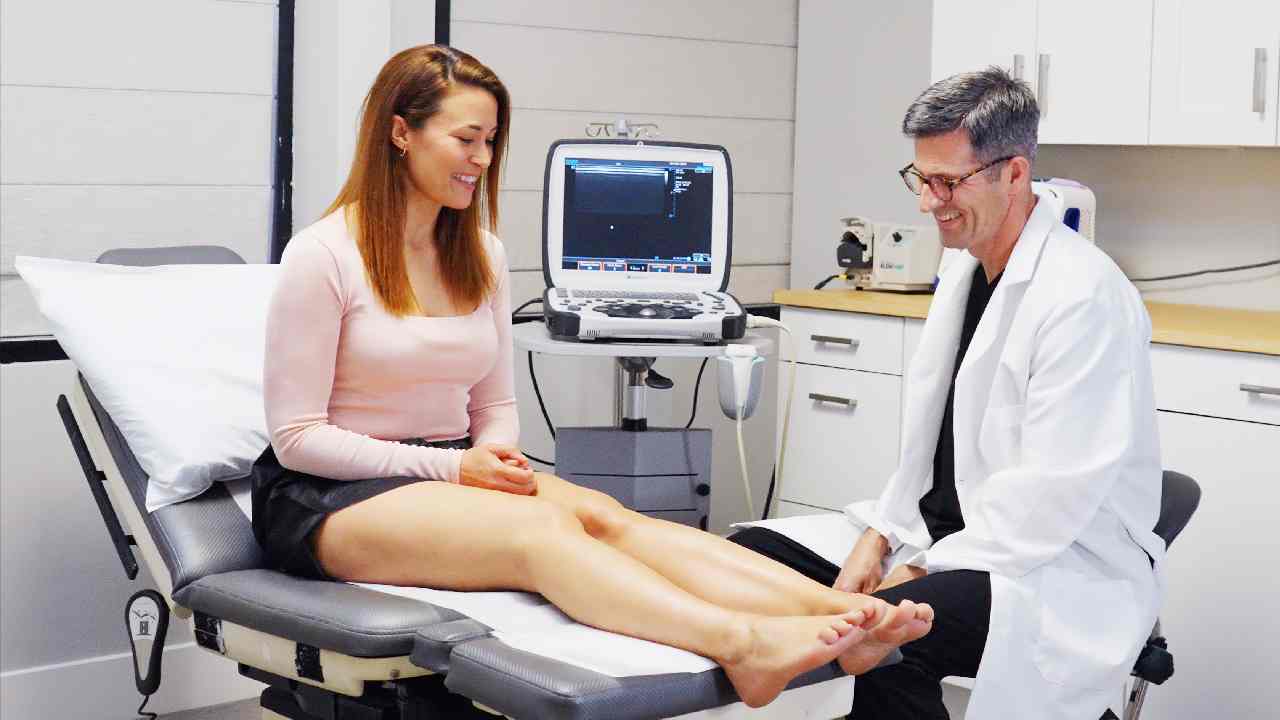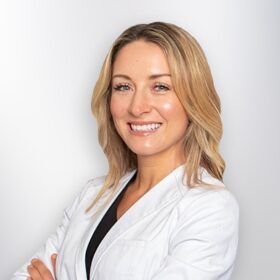
What is a Vein Doctor Called? You Need a Vein Specialist!
The medical terminology for a vein doctor is “phlebologist.” The term comes from “phlebology,” which is the branch of medicine that deals with the prevention, diagnosis, and treatment of vein problems, such as spider veins, varicosas, and insuficiencia venosa crónica. As such, vein doctors or phlebologists deal with the diagnosis and treatment of all vascular and vein conditions. If you have spider veins or varicose veins, for example, you should contact a vein doctor.
Vein doctors can come from all fields of medicine, such as anesthesiology, cardiology, dermatology, or others. To qualify as a phlebologist, a physician must complete a few written tests and examinations. The bar for entry into phlebology is fairly low, which means numerous inexperienced vein doctors have flooded the market. That’s why you must exercise caution when selecting vein doctors or phlebologists for your treatments.
You should generally look for vein doctors at vascular offices that are led by board-certified vein specialists. The American Board of Venous and Lymphatic Medicine officially certifies and recognizes vein doctors who distinguish themselves with advanced residency and fellowship training in vein care and minimally invasive spider vein and varicose vein treatments. To maintain board certification, vein doctors must pass numerous challenging tests and stay abreast of the latest developments in vein care.
Are you interested in getting more information about your condition or getting a treatment?
Fill the form below to start!
As such, if you’re looking for a reliable vein specialist near your location, please find board-certified vein doctors with specialized training in minimally invasive procedures. Our vein treatment clinics in New Jersey, New York, Maryland, California, and Long Island meet all of those requirements. If you have spider veins, varicose veins, or any of the signs and symptoms of vein disease, please schedule an appointment with our vein doctors today.
9 signs you need to consult a vein doctor
You should consult an ABMS board-certified physician or ABVLM-certified vein doctor if you notice any of the signs or symptoms of vein disease. Most patients consult vein doctors when they notice spider veins and varicose veins on their legs. But spider veins and varicose veins are only the most visible manifestations of vein disease — you should also look for all other less-visible symptoms of vein disease.
Chronic venous insufficiency is a circulatory disorder wherein your vein valves collapse. In healthy veins, the valves act as one-way doors, ensuring smooth one-way blood circulation to the heart. When your vein valves collapse, blood flows backward and accumulates in the leg veins, eventually leading to dilated veins, spider veins, and varicose veins. If left untreated, vein disease can lead to numerous complications, such as leg ulcers and deep vein thrombosis.
Below, we describe signs and symptoms indicating you must contact a vein doctor.
Leg Pain and Discomfort
Leg pain and discomfort are often the earliest symptoms of vein disease. CVI leads to the accumulation of blood in leg veins, which results in pain, heaviness, and discomfort. If you experience persistent leg pain, especially at the end of the day, it’s crucial to consult a vein doctor for a comprehensive evaluation.
La pesadez en las piernas
Feeling heaviness in your legs is another common sign of chronic venous insufficiency. This occurs due to blood pooling in leg veins, often accompanied by aching sensations. Leg heaviness can interfere with your daily activities, making it difficult to walk or stand for long periods. If you’re experiencing these symptoms, contact a vein specialist for a proper diagnosis.
Frequent Leg Cramps
Leg cramps are sudden, involuntary muscle contractions that may start in the legs but can also affect other areas, such as the arms. While leg cramps can have various causes, frequent leg cramps at night are typically a sign of underlying vein disease. Seeing a vein doctor can help determine the cause and provide effective relief.
Restless Leg Syndrome (RLS)
Síndrome de piernas inquietas is characterized by an urgent need to move your legs, especially at night. This constant urge to move can lead to disturbed sleep and increased discomfort. RLS is often linked to insuficiencia venosa crónica, so it’s essential to schedule an appointment with a vein specialist if you experience these symptoms.
Arañas vasculares
Arañas vasculares are the earliest visible signs of vein disease. They appear as clusters of red, blue, or purple veins just beneath the surface of the skin, commonly on the legs or face. While often seen as a cosmetic concern, spider veins can indicate underlying venous insufficiency. Early diagnosis and treatment can prevent the condition from worsening.
Venas varicosas
Estas venas várices are bulging, twisted veins that protrude from the skin’s surface. They often appear dark blue or purple and are a clear indication of advanced vein disease. If left untreated, varicose veins can lead to pain, swelling, and serious complications such as leg ulcers or blood clots. Consult a vein doctor for safe and effective treatment options.
Prolonged Discomfort and Skin Discoloration
Chronic venous insufficiency can cause prolonged discomfort, which often worsens at the end of the day or after long periods of standing or sitting. Additionally, poor blood circulation can lead to skin discoloration, particularly around the ankles and lower legs. If you notice these changes, seek medical attention promptly.
Other Complications
Left untreated, chronic venous insufficiency can cause serious complications including:
-
Leg ulcers – Non-healing wounds on the legs.
-
Skin infections – Resulting from damaged skin barriers.
-
Blood clots – Known as Deep Vein Thrombosis (DVT), which can be life-threatening.
Schedule Your Appointment Today
If you’re experiencing any of these symptoms of vein disease, don’t wait to seek help. Our Board-Certified vein specialists are experts in diagnosing and treating all types of venous disorders using minimally invasive treatments. We provide personalized care to ensure that you receive the most effective and comfortable treatment experience possible.
We understand that taking the first step toward vein treatment can feel overwhelming. That’s why we are committed to guiding you through the entire process, from the initial consultation to post-treatment care. Our team of dedicated professionals will answer all your questions, assess your unique condition, and recommend a customized treatment plan tailored to your needs.
The majority of our vein treatments are covered by medical insurance, and our support team will work closely with your insurance provider to ensure a smooth approval process. We are dedicated to making vein treatment accessible and affordable, allowing you to focus on your health and well-being without financial stress.
FEATURED POSTS BY VEIN DOCTORS









